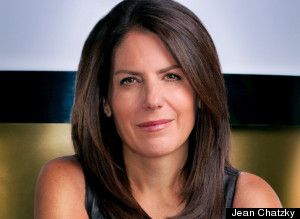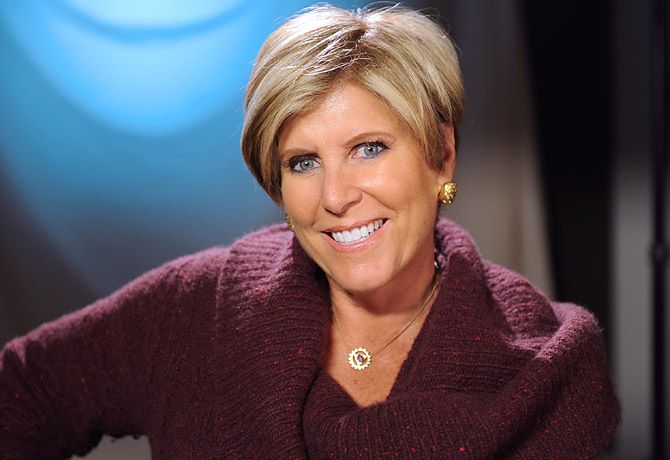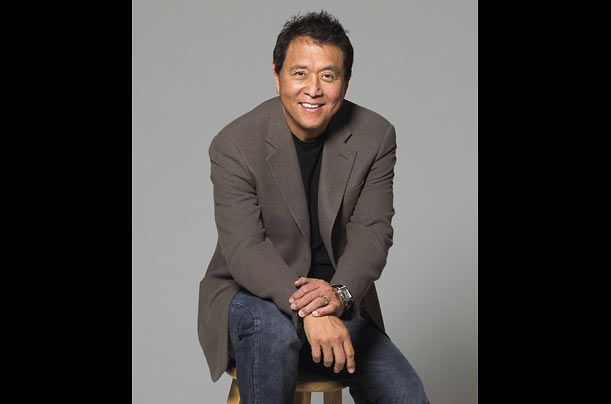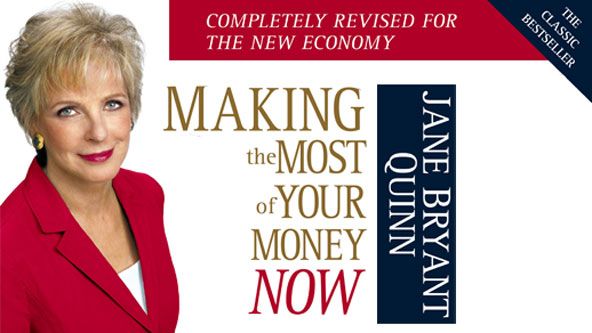華陀再世
一個中國醫學生(CMG)在美國的生活。。。
Dave Ramsey
Dave Ramsey takes to the airwaves 5 days a week as host of The Dave Ramsey Show, which, according to his Website, is heard on 500 radio stations, reaching an audience of more than 6 million people. In addition to several best-sellers aimed at adults, including The Total Money Makeover: A Proven Plan for Financial Fitness and Financial Peace: Putting Common Sense Into Your Dollars and Cents, Ramsey is also the author of several children's books on such topics as spending, saving, and debt.
Debt is something that Ramsey has had some personal experience with. On his Website, he says that he had "a lot of short-term debt" when he was younger, even on an annual salary equivalent to that of many doctors: $250,000. Getting rid of debt and building wealth has become something of a crusade for this self-made millionaire, and plenty of folks have attended his classes in cities and towns across the country. Ramsey's Website describes "Financial Peace University" as a "biblically based curriculum" and, in fact, nearly all of his financial seminars are held in places of worship.
What our experts say about Ramsey: Dave Ramsey has built up quite an empire and has a very devoted following. Many people, physicians among them, say they've taken much of Ramsey's commonsense advice to heart and have made a substantial amount of money over the years by sticking to it. Among Ramsey's "7 Baby Steps" are smart recommendations like "invest 15% of your household income in Roth IRAs and pretax retirement plans" and "pay off your house early."
The knock on this advice among financial experts is that it's sometimes too simplistic and it doesn't allow for the realities of life, such as job loss, boomerang kids, the death of a spouse, or divorce. But as one devoted Ramsey fan put it, "Everyone has to start somewhere, and Dave's tips on debt and budgeting have put a lot of people on the right path."
The biggest concern about Ramsey isn't so much with the advice he's giving, say the people we spoke with, but rather with the various alliances he's formed with other financial professionals. Take, for instance, "Dave Ramsey's Endorsed Local Providers" (ELPs for short): a list of investment advisors, insurance agents, tax professionals, and real estate agents that Ramsey's company maintains. "Unfortunately," says author and economist Eric Tyson, "Ramsey's company fails to disclose that they're referring unsuspecting members of the public to commission-based brokers -- and that Ramsey has been paid a fee from each of these professionals."
Ramsey discloses this relationship on his Website, but says the fees are used to fund the large staff and technology necessary to operate the ELP program. Be that as it may, Tyson says it takes chutzpah to say, as it does on Ramsey's Website, that "ELPs earn Dave's endorsement, they don't buy it."
Jean Chatzky
A journalist who worked as a Wall Street research analyst to further her ambitions of writing for a major financial magazine, Jean Chatzky has become a nationally known columnist; book author; and, in recent years, a featured financial expert on NBC's Today show.
Like Dave Ramsey, Chatzky's own experiences with debt fueled her desire to want to help others avoid the cash-flow problems she got into when she was just starting out in the world of journalism -- mistakes that she shares on her Website. It's that sort of humility and straight-shooting that has attracted scores of novice investors to Chatzky's books and online money management programs.
In addition to being a television personality and best-selling author, Jean Chatzky has partnered with financial companies, including American Express, Principal Financial Group, Visa, and Wells Fargo, to develop financial and educational "wellness programs" for their employees, customers, and clients. A testimonial on Chatzky's Website says, "Over and over again, Jean delivers great work for us. She's smart. She's witty. She's approachable. Jean is a journalist and a financial expert, but the reality is, she's also someone you want to chat with over a cup of coffee."
What our experts say about Chatzky: "Jean Chatzky gives solid, basic advice and encourages consumers to pay close attention to the many parts of their financial lives," says financial planner Karen Altfest. "Her ideas are simple and clear. Her books are written in the same clear style, so consumers don't have to have any particular expertise to realize that they could be doing more to take care of their own finances." In fact, Altfest thinks so highly of Chatzky that she's recommended her books to some of her clients.
Our other experts agree with Altfest, although one expressed reservations: "Jean Chatzky's basic, day-to-day advice is fine, but her overall philosophy doesn't work for everyone and she doesn't seem to account for that," says author Helaine Olen. Two of Chatzky's mantras, which appear on her Website, are "spend less than you make" and "save, then invest." Those are fine for people with means, such as doctors and other high-earners, Olen says, but "it's dubious advice if you're on unemployment and trying to get by on a few hundred dollars a week."
Then there are Chatzky's partnerships with financial companies: "Those relationships make her very unlikely to publicly criticize any of these companies and their business practices," Olen points out.
Jim Cramer
A Harvard Law School graduate who touts himself as the "champion of the middle-class investor," Jim Cramer is one of the most ubiquitous financial personalities in the media today. Cramer's blustery, arm-waving style has won him many fans, however. His television show, Mad Money, runs 5 nights a week on CNBC, and he's also a coanchor of the network's Squawk on the Street program, which airs from the floor of the New York Stock Exchange. Cramer has also appeared on CBS' 60 Minutes; NBC's Nightly News with Brian Williams, Meet the Press, and The Tonight Show; and MSNBC's Morning Joe.
No stranger to controversy, Cramer's opinions have ruffled feathers as high up as the White House, which responded to his accusations, in 2009, that President Obama caused "the greatest wealth destruction I have seen by a president."
What our experts say about Cramer: Before becoming a TV star, Jim Cramer ran a hedge fund that was apparently wildly successful -- or so he claims. Eric Tyson says that he was unable to verify the returns independently. "Beware of prognosticators claiming market-beating returns who have no proof of their supposed superior performance," Tyson warns.
It has been much easier, however, to track Cramer's more recent record. A closer look at his stock picks show that he's roughly in the middle of the pack compared with his fellow experts. According to CXOadvisory.com, which graded more than 6400 forecasts made by 68 experts from 2005 through 2012, Cramer had an accuracy rating of 46.8%. By comparison, the highest-rated expert, David Nassar, came in at 68.2%.
"Jim Cramer's predictions sometimes swing dramatically from optimistic to pessimistic, and back again, over short periods," concluded Steve LeCompte, editor of CXOadvisory.com. "It's difficult to infer his guiding valuation theory." Simply put, it's tough to gauge how Cramer chooses the stocks he chooses.
Helaine Olen seconds that, adding, "Because Jim Cramer is so popular, his stock picks often suffer from what's known as the 'Cramer effect': There's an initial run-up in the price as everyone rushes to take advantage of one of his 'inside tips,' then the price slowly deflates over the course of the next several weeks or months. That's not necessarily his fault, but this is what often happens when he mentions the name of some company he's excited about."
A scholarly analysis of Cramer's buy and sell recommendations, published in October 2008 by Paul J. Bolster and Emery A. Trahan, researchers at Northeastern University, the impact Cramer has on the share prices of the companies he discusses. The authors concluded, however, that "while Cramer may be entertaining and mesmerizing to many of his viewers, his aggregate or average stock recommendations are neither extraordinarily good nor unusually bad."
Suze Orman
Like Jim Cramer, Suze Orman is no stranger to the viewing public. In fact, her Website goes so far as to say, "Orman is undeniably America's most recognized expert on personal finance." While that boast may be hard to substantiate, there's no denying that Orman has been extremely prolific over the past several years.
She's had several best-sellers, including Women & Money: Owning the Power to Control Your Destiny and The Money Class, and has been honored by many national women's organizations for her messages of financial empowerment. Orman has also won 2 Emmy Awards as a television host and 8 Gracies, which recognize outstanding programming "created for women, by women, and about women."
What our experts say about Orman: Suze Orman has no formal training in personal finance, a fact she freely admits on her Website. Although there's no crime in that -- smart people make successful career switches all the time -- both Olen and Tyson say that much of Orman's advice is based on platitudes, and is general and nonspecific. Tyson says the "good debt/bad debt" argument -- good debt includes mortgage debt, bad debt includes such things as credit card debt -- may well be true, although it's an old philosophy that Orman has simply recycled.
But for every detractor, there's someone willing to sing her praises. In fact, it's hard to argue that Orman's advice is off-base when, as she did a few years ago, she advised home ownership only for people who can truly afford it: 20% down, with 8 months' worth of living expenses in reserve.
As she said in a video posting, "There's a whole lot more to home ownership than being able to afford the mortgage: You have closing costs. You have moving costs. You have decorating costs. You have all these expenses. And when things go wrong...you're the one responsible." If that's overly general, then so be it. But it probably made some cash-strapped folks think twice about taking the home-ownership plunge.
Granted, Suze Orman has become something of an industry unto herself, including partnerships with such companies as MasterCard and LendingTree. (Her Website promotes a prepaid MasterCard debit card called "The Approved Card from Suze Orman," which requires a $3 nonrefundable enrollment fee.) "These relationships seem to me to be a conflict of interest," Eric Tyson says. "How can she objectively review and recommend products and services in the financial services industry if she's receiving fees from those same companies?"
Robert Kiyosaki
Robert Kiyosaki's 1998 best-seller, Rich Dad Poor Dad, maps the financial paths of 2 men who shaped the author's outlook on money: his natural father, a well-educated man who nonetheless struggled with his finances, and his best friend's dad, a high-school dropout who built a successful business and achieved great wealth.
The story was captivating enough to launch a whole "Rich Dad" industry that includes books, workshops, radio programs, personalized coaching, and live events. There's even a board game called "Cashflow 101," which is sold through richdad.com for $195. (A kid's version is available, too.)
All of these products and services have only added to Kiyosaki's wealth, however: The teachings he espouses in Rich Dad Poor Dad helped him retire by 47 years of age, his Website says.
What our experts say about Kiyosaki: "No one should be listening to this guy," says Helaine Olen, who has a hard time believing some of Kiyosaki's stories and other assertions in Rich Dad Poor Dad. "His workshops have advocated investing in real estate by using credit cards as quick down-payment money. That's terrible advice." Indeed, Kiyosaki has been a long-time fan of real estate and has historically bashed investing in stocks and mutual funds. In a 2006 article, he wrote that investing long term in a diversified portfolio of mutual funds "ranks among the worst possible investments."
Kiyosaki then proceeded to attribute some faulty logic about mutual fund fees to Vanguard founder John Bogle, in short saying that mutual fund companies typically take 80% of a fund's annual return and give investors just 20%.[3]
That's crazy talk, Eric Tyson says. "What planet is Kiyosaki living on that he asserts mutual funds keep 80% of investors' returns?" For instance, the typical stock fund charges far, far less in fees and returns, on average -- about 8% per year over the long term. Tyson further argues, "If you buy a low-cost stock index fund and pay just 0.2% per year in fees, that would represent only 2% of your total return -- again, a far cry from 80%."
Jane Bryant Quinn
One of the "deans" of personal finance, Jane Bryant Quinn has been in the public eye for more than 3 decades. According to her Website, she wrote a syndicated column that ran in more than 250 newspapers for 27 years and contributed a column to Newsweek for 30 years. Her career in television includes 2 programs on PBS and a 10-year stint with CBS News. Bryant Quinn's highly acclaimed book, Making the Most of Your Money, was first published in 1991 and is currently in its third printing.
A second book, Smart and Simple Financial Strategies for Busy People, came out in 2006. A frequent speaker for business, civic, and educational groups, Bryant Quinn has won an Emmy and a Janus Award for her television work and has received the Gerald Loeb Award for distinguished lifetime achievement in business and financial journalism.
What our experts say about Bryant Quinn: "Her advice is excellent," Olen says, adding that Jane Bryant Quinn has no contractual partnerships with financial companies and touts no products on her Website, with the exception of her books. "In many ways, she's in a league of her own among these people," Olen says.
Bryant Quinn has also been early in discussing what later turned out to be several major financial trends, including the increasing burden of healthcare costs on businesses, individuals, and families and the steady growth of income inequality in America. "She shows a social conscience and an ability to see elements of society that can have lasting effects -- for better or worse -- on people's finances," Olen says. "She's a real class act."
Karen Altfest, who has met Jane Bryant Quinn several times, agrees. "Her columns have always been very helpful and informative, and her books have been almost exhaustive in the good-sense information they provide. She always maintains very high standards." Altfest adds that Bryant Quinn will be honored this spring by the Financial Planning Association of New York, such is her reputation within the greater financial planning community.
Conclusion
Self-promotion and the occasional theatrics aside, these experts have opinions and assertions that could benefit your finances in the long run. Take their advice, however, with a healthy pinch of skepticism, especially when it comes from people who promote a lot of products in addition to their books.
If you have any doubts about what you hear or read, run it past your financial planner, or, if you don't yet have one, your accountant or other trusted money advisor. "Don't just listen to some screaming guy on TV," Helaine Olen says. "That's not the way to approach investing."
(PK團成員:• Karen Altfest, PhD, CFP, principal advisor and executive vice president of client relations for Altfest Personal Wealth Management in New York City. • Helaine Olen, a New York City-based journalist and author of the recently released book, Pound Foolish: Exposing the Dark Side of the Personal Finance Industry. • Eric Tyson, MBA, an economist and best-selling author of personal finance books, including Personal Finance for Dummies, which was awarded the Benjamin Franklin Award for best business book of the year by the Independent Book Publishers Association. )




